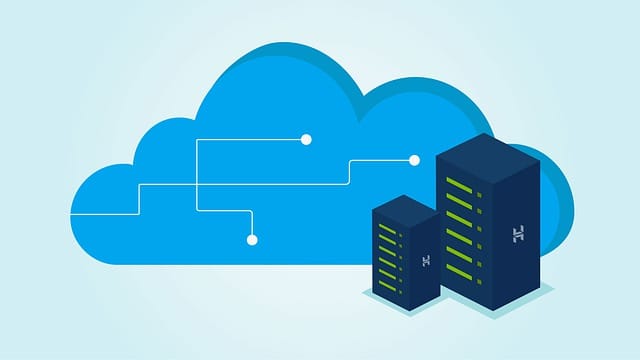Cloud security has become a top priority for businesses of all sizes in recent years. By knowing the five pillars of cloud security, businesses can make sure that their data is safe from theft and unauthorized access. The five pillars of cloud security are:
- Identity and access management (IAM): IAM solutions are cloud services that help organizations securely manage user identities and control access to resources. IAM systems can also help keep track of activity and audit logs to help find any suspicious or unauthorized activity.
- Data security: Protecting sensitive data kept in the cloud requires strong data security. Data can be protected against theft and unauthorized access with the aid of data encryption and other security measures.
- Network security: Secure networking is critical for protecting data as it flows between the cloud and on-premises systems. Firewalls and intrusion detection/prevention systems are two examples of network security tools that can assist defend against malicious attacks.
- Cloud platform security: The security of the underlying cloud platform is essential for ensuring the safety of data and applications hosted in the cloud. Platform-level security features such as identity and access management, firewalls, and intrusion detection/prevention systems help protect against malicious attacks.
- Disaster recovery: Data protection in the event of a natural disaster or system failure depends on a disaster recovery strategy. In the event of a disaster, cloud-based disaster recovery solutions can help organizations quickly recover lost data and get back to work.
Identity and Access Management
A combination of operational practices, guidelines, and technological tools known as an identity and access management (IAM) framework helps organizations to manage digital or electronic identities. Information technology (IT) managers can use an IAM strategy to regulate user access to vital information within their businesses.
IAM includes things like managing who has access to what, two-factor authentication, multi-factor authentication, and single sign-on systems. These systems also enable the secure storage of identity and profile information, as well as data governance capabilities to ensure that only relevant and necessary data is shared.
Data Security
Cloud data security involves the use of technologies, policies, services, and security controls to prevent any sort of data in the cloud from being lost, leaked, or misused due to breaches, exfiltration, and unauthorized access. A sound cloud data security strategy should include data encryption, access control measures, activity monitoring, and regular security audits.
Network Security
Network security in the cloud is designed to protect data as it flows between the cloud and on-premises systems. A secure network typically uses a combination of firewalls, intrusion detection/prevention systems (IDS/IPS), virtual private networks (VPNs), and other security technologies to protect data in transit.
Cloud Platform Security
“Cloud platform security” refers to the security features and controls that are implemented at the level of the underlying cloud platform. These safety precautions aid in safeguarding cloud-hosted data and applications. Common platform-level security features include identity and access management, firewalls, intrusion detection/prevention systems, and data encryption.

Disaster Recovery
Disaster recovery planning is a vital part of any cloud computing strategy. In the event of a natural disaster or system failure, cloud-based disaster recovery solutions can help organizations quickly recover lost data and get back to work. Disaster recovery as a service (DRaaS) is a type of cloud-based disaster recovery solution that provides organizations with backup and recovery services on a pay-as-you-go basis.
Benefits of Cloud Security for Businesses
There are many benefits that businesses can enjoy by implementing a comprehensive cloud security strategy. Some of the most notable benefits include:
Enhanced data security: Cloud solutions can help businesses protect their data from unauthorized access, exfiltration, and theft.
Improved compliance: A sound cloud security strategy can help businesses meet regulatory requirements and industry-specific standards.
Reduced costs: By using cloud-based security solutions, businesses can save on the costs associated with traditional on-premises security solutions.
Increased agility: Cloud security solutions can help businesses quickly adapt to changing needs and threats.
Improved Productivity: Cloud security solutions can help businesses be more productive overall by freeing up IT resources that would have been used to manage security solutions on-site.
Risks of Not Implementing Cloud Security
There are several risks associated with not implementing a comprehensive cloud security strategy. Some of the most notable risks include:
Data breaches: Businesses run the risk of data breaches if they don’t have the right security measures in place. A data breach can result in the loss or theft of sensitive information, which can hurt the business’s reputation and bottom line.
Compliance violations: Businesses that don’t put in place enough security measures risk breaking regulations and standards for their industry. This can lead to fines and other penalties that are hard to pay.
Operational disruptions: Inadequate security measures can lead to operational disruptions, such as downtime and data loss. This can negatively impact the business’s bottom line.
How to Implement Cloud Security
There are many different ways that businesses can implement cloud security. Some common approaches include:
Use encryption. Encrypting data while it is at rest and while it is being sent from one place to another is one of the best ways to keep it safe from unauthorized access and theft.
Implement access control measures: Access control measures, such as user authentication and authorization, can help businesses control who has access to their data.
Monitor activity: Activity monitoring can help businesses detect suspicious activity, such as unauthorized access attempts and data exfiltration.
Audit security measures regularly: Regular audits of security measures can help businesses find holes in their security.
Cloud security is a critical concern for businesses of all sizes. Businesses can protect their data and applications from unauthorized access and exfiltration by understanding the risks and putting in place the right security measures.
Is Cloud Security a Must for Your Business?
The answer to this question will depend on what your business needs.. If you store sensitive data in the cloud, then it is important to implement a comprehensive security strategy.
However, even if you don’t store sensitive data in the cloud, it is still a good idea to implement some basic security measures. The bottom line is that any business that uses cloud-based applications and services should have a security strategy in place.











